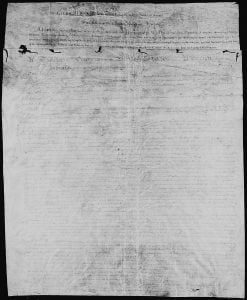Treaty of August 3, 1795
Treaty of August 3, 1795, also known as the Treaty of Greenville. The Treaty of Greenville set a precedent for objectives in future treaties with Native Americans — that is, obtaining cessions of land, advancing the frontier through white settlement, and obtaining more cessions through treaties. With the tribes’ surrender of most of Ohio, settlers began entering in Northwest Territory in greater numbers. In the near future, more treaties would further diminish Indians’ territory. A treaty of peace between the United States of America and the Tribes of Indians, called the Wyandot, Delaware, Shawanoe, Ottawa, Chipewa, Putawatime, Miami, Eel River, Weea, Kickapoo, Piankashaw, and Kaskaskia.

